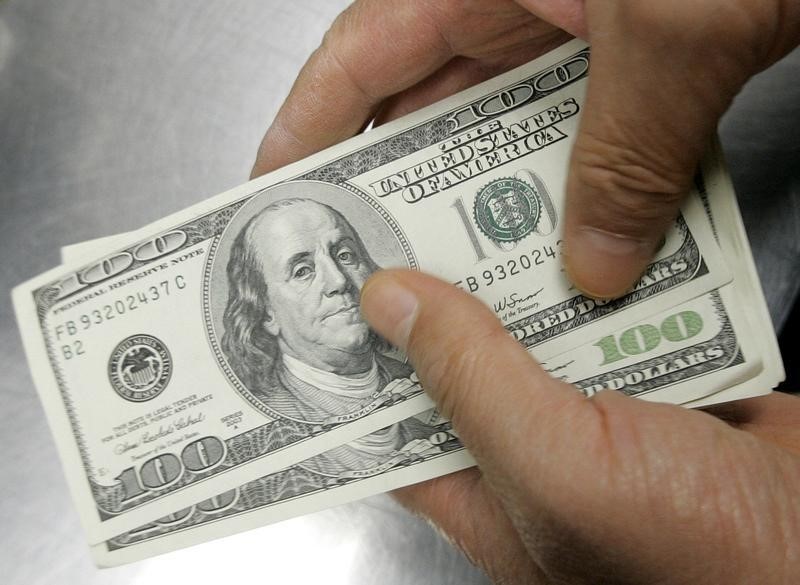By Jemima Kelly
LONDON (Reuters) - The dollar struggled to climb off 3-1/2-month lows on Wednesday as worries over a global economic slowdown weighed and traders waited for more tips on the likely course of U.S. interest rates from Federal Reserve Chair Janet Yellen.
The greenback has shed more than 3 percent over the past two weeks as expectations of a 2016 rate rise have all but vanished. Concern over sliding commodity prices, a slowing Chinese economy and the health of European banks have also dampened dollar demand in favor of safe-haven assets such as the yen.
Despite a shock move from the Bank of Japan to adopt negative interest rates two weeks ago, the yen hit a 15-month high of 114.05 per dollar <JPY=> on Tuesday and was up 0.2 percent on the day at 114.89 yen on Wednesday. It has gained more than 6 percent since an initial fall on the BOJ's move.
Currency strategists at Bank of America Merrill Lynch (N:BAC) said in a research note that the risk of a dollar fall to 110 yen had increased. This week's European bank sell-off and widening credit spreads had spurred demand for the Japanese currency, they said, but the "waning power of policy" had also contributed.
"Before the BOJ's January meeting, we had thought that the 'cost of acting' outweighed the 'cost of not acting', in a sense that any...impact of additional easing risks being absorbed by volatile market conditions caused by global factors, which would signal the limit of BOJ's ammunition," they wrote.
"That risk has now shown up."
The options market suggests huge demand for yen calls, or right to buy the yen. Risk reversal spreads, which measure the price gap between the yen calls and yen puts, are at their widest in favor of calls since 2010 <JPY1MRR=FN>.
The dollar was flat against a basket of currencies at 96.056 (DXY), having touched 95.663 on Tuesday, its lowest since October.
BNP Paribas (PA:BNPP) currency strategist Michael Sneyd, in London, said Yellen - the text for whose congressional testimony is due at 8.30 a.m. ET - would be unlikely to provide any kind of rebound for the dollar.
"The most likely is quite a balanced assessment, in which she says the U.S. economy is doing well, but acknowledges that the market hasn't taken this first rate hike too well and that this has led to a tightening of monetary conditions," he said.
"It seems we're likely to remain in this regime where the dollar continues to lose ground against the euro and the yen."
In times of economic stress, countries or regions running current account surpluses, as are Japan, the euro zone and Switzerland, are seen as safer compared with those that have deficits and rely on foreign capital to finance the gap. The United States and Britain fall into the latter category.

After data showed Norwegian core inflation unchanged, Norway's crown rose as much as 1.2 percent.